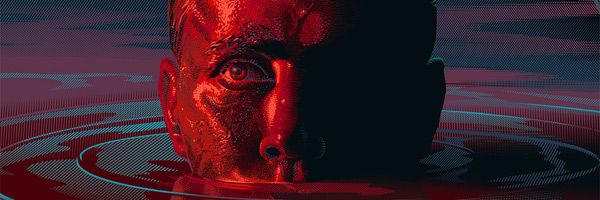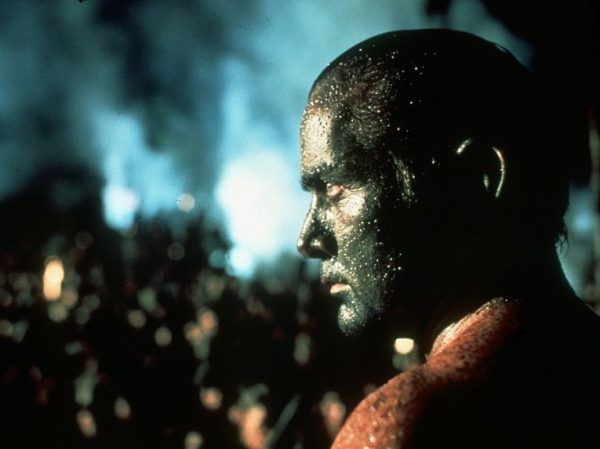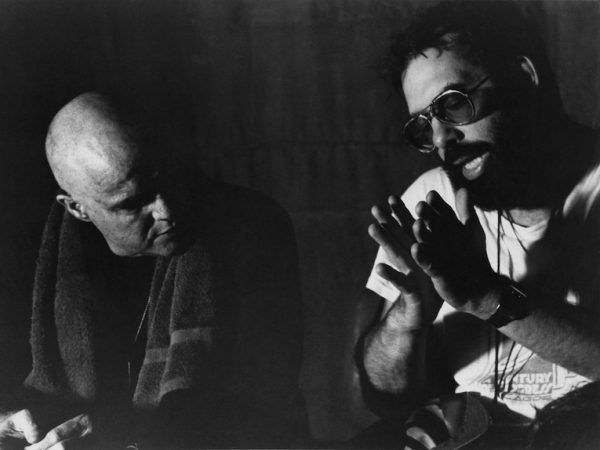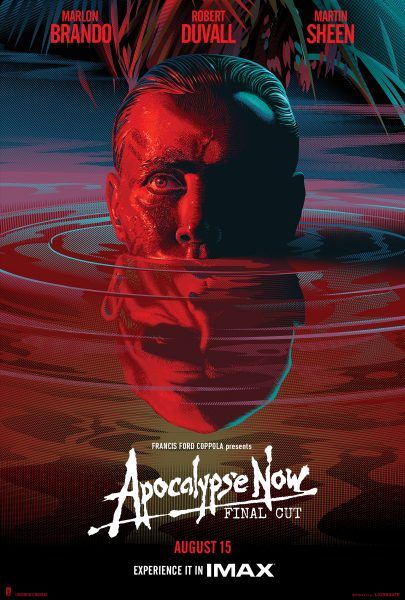It's not often you get a Wizard of Oz-style transition from black and white into technicolor moment in real life. But that's exactly how it felt sitting in Francis Ford Coppola's editing room at his sprawling Inglenook estate, watching a transition between Apocalypse Now's iconic "Flight of the Valkyries" scene on VHS, DVD, Blu-ray, and the crystal-clear, eardrum-pounding 4K state it's in for the release of Apocalypse Now Final Cut. Even if you've seen the Vietnam War epic dozens of times, I really can't recommend enough plugging this version into the best speakers you have and getting blown backward like the Maxell guy. The Academy Award-winning cinematography and sound could've been shot yesterday on a soundstage, not in 1979 during perhaps the most chaotic production of all time.
The story of Captain Benjamin L. Willard (Martin Sheen) and his surreal, nightmarish boat trip into Cambodia to assassinate insane rogue Colonel Kurtz (Marlon Brando) remains largely the same. Shorter than the marathon Apocalypse Now: Redux but more substantial than the 1979 theatrical release—yes, the French rubber plantation sequence is still here, but mercifully shorter—Final Cut represents, in Coppola's mind, the version of Apocalypse that best serves the filmmaker's vision.
"The right blend for the most pleasant illusion to be born," as Coppola himself put it when he sat down for a Q&A with Collider and few other outlets. "A film always can be looked at, and its flaws, because it's an illusion, can be dealt with."
Coppola later continued:
"Film is very magical. It is astounding what happens when you take this piece of film, cut it to this piece of film, and get a result that is something beyond what either piece had in it. It's alchemy. It's remarkable. The possibilities are endless, what you can do. If the film is not giving you what you want, there's always another way to look at it, where perhaps it will."
Maybe even more iconic than the film's technical achievements is the descent into madness the production—and especially Coppolla—went through to get it done. Embedded in the Philippine jungle for a scheduled five-month shoot that ballooned to well over a year, Apocalypse saw Typhoon Olga destroy a good portion of the sets, Sheen suffering a heart attack, and Brando infamously showing up severely overweight for his Green Beret role without having read the film's source material, Heart of Darkness.
By now, most movie obsessives know the solution cooked up for that last issue to bathe Brando's Kurtz in shadow, but Coppola told us a fascinating story about how much cinematographer Vittorio Storaro and Brando himself contributed to that fix.
"Vittorio Storaro, he said let's get him up there on Friday and we'll just start fooling around. Brando had an interesting habit. The first thing he would do, I knew this from The Godfather, when he came in to do the shot...the first thing he'll do to me is go [moves his hand slowly up his chest]. What he's doing is, he's asking where the line cuts. When he did that, he then proceeded to act with only that part of him. Whatever he did that would be good and interesting, he should be sure to have it there...Vittorio, brilliantly, just put him in darkness and just had a little patch of light. Well, Brando saw that, and he proceeded to use that little patch of light as a prop. We were all in it together, but the two great innovators in that thing were Vittorio by choosing to just show a little of him, and Brando by working it as part of his performance."
As for Dennis Hopper's infamously drug-fueled, improvised performance as a photojournalist fallen under Kurtz's spell—the actor reportedly requested "about an ounce of cocaine" to help with the role—Coppola still claims to not know the worst of it. But Oscar-winner did have some fond, focused memories for marijuana.
"I never took any drugs in my life at all except for some grass. I found that the effect that the grass would have on me is interesting. One, it would make me extremely focused, so if I was trying to evaluate a script or write a script, I wasn't thinking of all the things where my feelings were hurt about this or I was worried about that. I'm sure grass affects different people in different ways. For me, I tended to be very focused. If I smoked a joint, I couldn't fall asleep. I'd want to work. And often, I stayed up all night trying to rewrite a script. I've had cocaine, but I found it very unpleasant. It's too much."
"In terms of Dennis Hopper," Coppola concluded, "God knows what he was doing.”
Apocalypse Now Final Cut is available on Blu-ray and 4K HD now.




